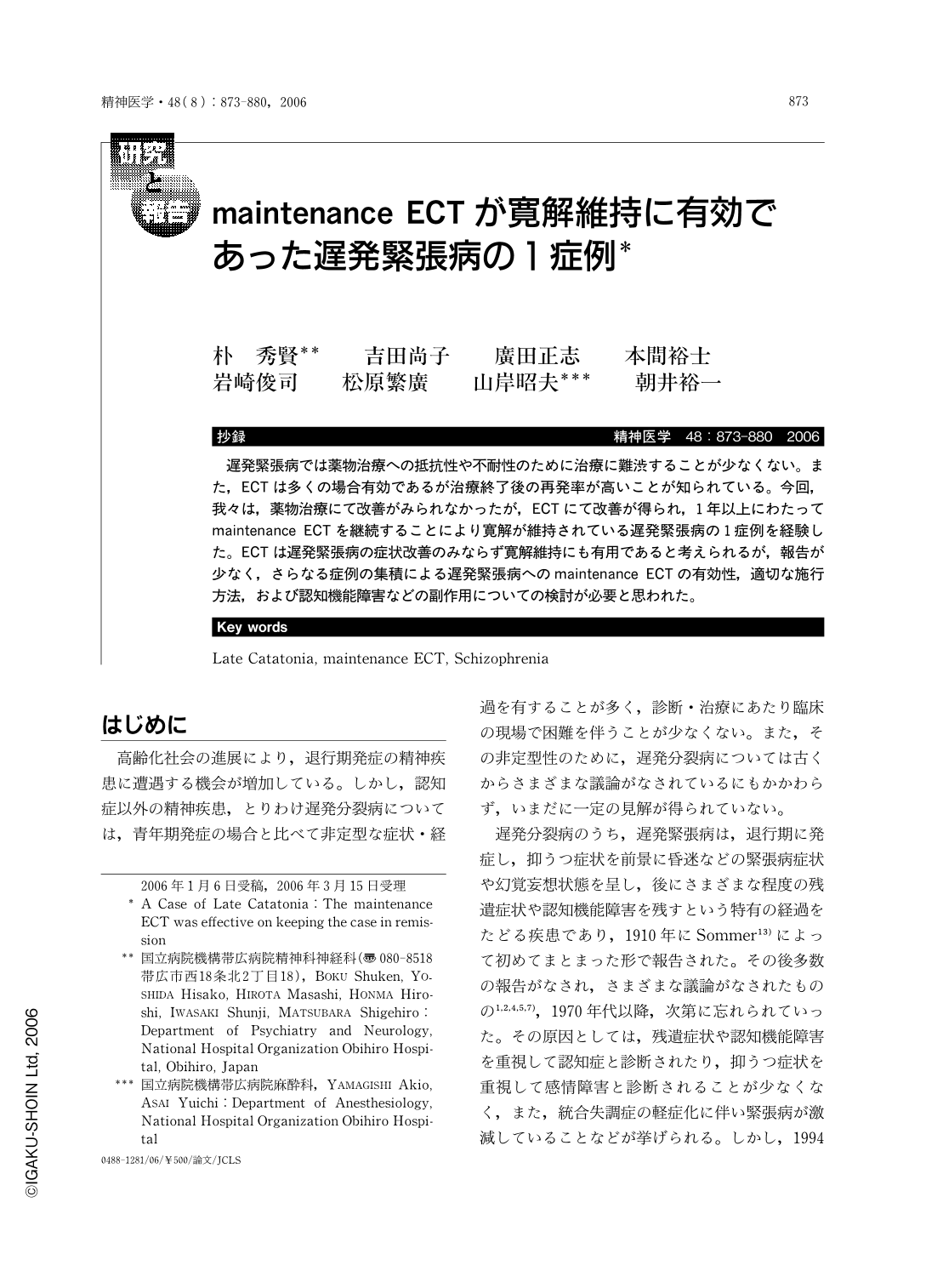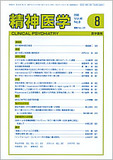Japanese
English
- 有料閲覧
- Abstract 文献概要
- 1ページ目 Look Inside
- 参考文献 Reference
抄録
遅発緊張病では薬物治療への抵抗性や不耐性のために治療に難渋することが少なくない。また,ECTは多くの場合有効であるが治療終了後の再発率が高いことが知られている。今回,我々は,薬物治療にて改善がみられなかったが,ECTにて改善が得られ,1年以上にわたってmaintenance ECTを継続することにより寛解が維持されている遅発緊張病の1症例を経験した。ECTは遅発緊張病の症状改善のみならず寛解維持にも有用であると考えられるが,報告が少なく,さらなる症例の集積による遅発緊張病へのmaintenance ECTの有効性,適切な施行方法,および認知機能障害などの副作用についての検討が必要と思われた。
It is often difficult to treat late catatonia because of its resistance to and intolerance of medication. The electroconvulsive therapy (ECT) is effective in many cases of late catatonia, but late catatonia easily relapses after the termination of ECT. Here, we report a case of late catatonia in which the maintenance of ECT was effective in keeping the case in remission.
The patient was a 55-year-old woman. She had no previous psychiatric or neurological illness. At the beginning, she became depressive. Her depressive symptoms were once improved by antidepressants, but catatonic symptoms and delusions appeared. These symptoms were refractory to antipsychotic medication and adverse effects were severe. We applied ECT, and her catatonic symptoms improved remarkably. However, these symptoms relapsed after the termination of ECT even though antipsychotic medication was continued. Because of this, We tried the maintenance of ECT, which kept her in remission successfully. Adverse effects of the maintenance of ECT have not yet appeared.
This case suggests that maintenance ECT could be an effective and tolerant treatment for late catatonia. Here we report the clinical course of this case and discuss the differential diagnoses, the treatment for late catatonia, the adverse effects of the maintenance of ECT, and appropriate practice of the maintenance of ECT for late catatonia.

Copyright © 2006, Igaku-Shoin Ltd. All rights reserved.


